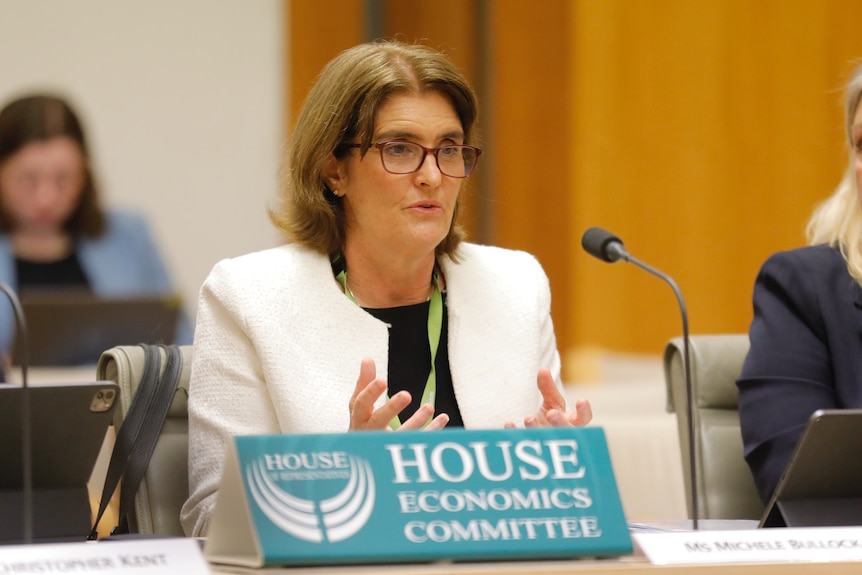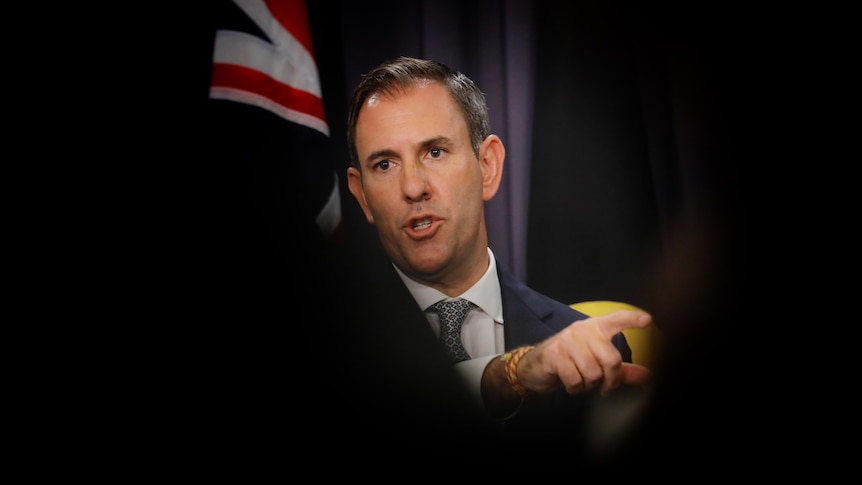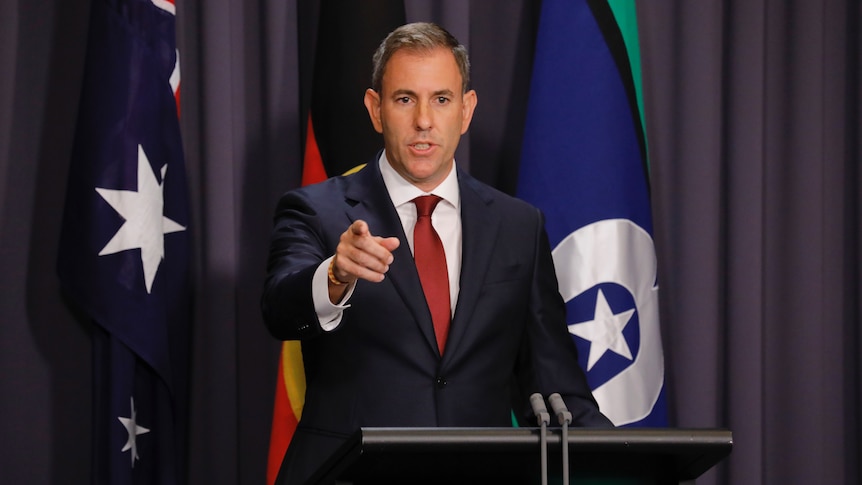In January, Treasurer Jim Chalmers was exploring strategies to promote his suggested stage 3 tax cuts, considering their potential impact on inflation.
RBA Governor’s Lack of Contact with PM’s Office
The sequence of events that followed has piqued the interest of seasoned public policy analysts.
In a bid to gain impartial insights into the impact of tax cuts on inflation, the Treasurer reached out to Reserve Bank Governor Michele Bullock.
During a recent session with a Senate Committee, Ms. Bullock recounted the details of their discussion.
She explicitly stated, “I had no direct communication with the prime minister’s office.”
While conversing with the Treasurer and sharing the bank’s perspective, Ms. Bullock assumed that her insights might be utilized, although no explicit commitment was made.
This exchange transpired verbally between the Treasurer and the RBA Governor, focusing on the potential impact of tax cuts on inflation.

Michele Bullock and Jim Chalmers discussed the impact of tax cuts on inflation over the phone, as reported by ABC News. The Reserve Bank of Australia (RBA) did not conduct independent modeling on how the stage 3 tax cuts would affect inflation. Despite an FOI request, no emails or documents related to the RBA’s analysis of the tax cut changes were found.
Treasury Secretary Steven Kennedy provided Bullock and her team with an 11-page document regarding the tax cuts for analysis. During a House of Representatives Standing Committee on Economics meeting, Bullock mentioned her conversation with Kennedy before the cabinet meeting. Kennedy briefed her on the information, and her team reviewed the Treasury calculations and subsequent publications.
Bullock highlighted that their forecasting process does not involve individual cohort analysis but focuses on the fiscal envelope and the overall impact on the household sector due to tax changes. After discussions and analysis, they concluded that the tax cuts, although distributed differently, would not alter their inflation forecasts as the fiscal envelope remained unchanged.
Overall, the RBA’s assessment, guided by discussions with Kennedy and internal analysis, confirmed that the tax cuts’ inflation impact would be minimal.
Economists Warn of Inflationary Impact from Tax Cuts
During the recent announcement of stage 3 tax cuts, Treasurer Jim Chalmers emphasized consultation with key financial figures. He mentioned seeking input from Reserve Bank governor and Michele Bullock to gather diverse perspectives on the potential impact of these tax cuts.
Chalmers also highlighted separate discussions between the Treasury secretary and the Reserve Bank governor, indicating a thorough review process.
According to Chalmers, the Reserve Bank governor’s feedback suggested that the proposed tax cuts are unlikely to significantly alter the bank’s inflation forecasts or expectations.
The Reserve Bank’s assessment of the inflationary consequences of the stage 3 tax cuts was based on insights from Treasury documents.
While many economists agree that the stage 3 tax cuts may not lead to substantial inflation, concerns have been raised regarding the consultation process, with experts like Chris Richardson expressing unease.

Renowned Australian economist, Chris Richardson, shared insights on the recent developments. According to him, discussions might have occurred over the phone rather than being documented in writing. The urgency of the situation and political factors likely contributed to this. Despite the complexities of the political landscape, Richardson emphasized that the government’s announcement on tax cuts and their inflation impact was carefully considered. He expressed some reservations about the government’s approach, suggesting a more collaborative stance with the Reserve Bank on the matter.
Tax cuts and inflation impact on rising unemployment rates

Analysis of Tax Cuts on Inflation Impact
When considering the concept of central bank independence, it is crucial to implement it correctly to avoid potential issues. The economist expresses concerns about the approach taken, suggesting that the right method may not have been followed.
Furthermore, the economist highlights a shift in focus towards the inflationary consequences of the alterations to the stage 3 tax cuts. He argues that the entirety of the tax cuts is likely to result in an inflationary impact, emphasizing the importance of considering such implications.
According to Mr. Richardson, while the impact on inflation remains a significant factor, it could lead to a delay in implementing the first interest rate cut compared to other global regions. This delay could have implications for the economy and financial stability.
Regarding the modifications to the stage 3 tax cuts, independent economist Saul Eslake predicts a minimal inflationary effect. He suggests that the government’s adjustments in tax cuts will result in a redistribution of income, potentially influencing consumer behavior.
Eslake further explains that the changes made by the government in the context of tax cuts might lead to increased consumer spending, posing a slight risk of inflationary pressure. This redistribution of income could impact different cohorts in terms of saving and spending patterns.
Understanding the intricate relationship between tax cuts and their inflationary impact is essential for policymakers to make informed decisions that benefit the economy as a whole.
For more insightful articles on economic matters, please visit our site 60time.com. Don’t forget to follow us on social media for the latest updates and analysis. Find us on Facebook @60time.com.



